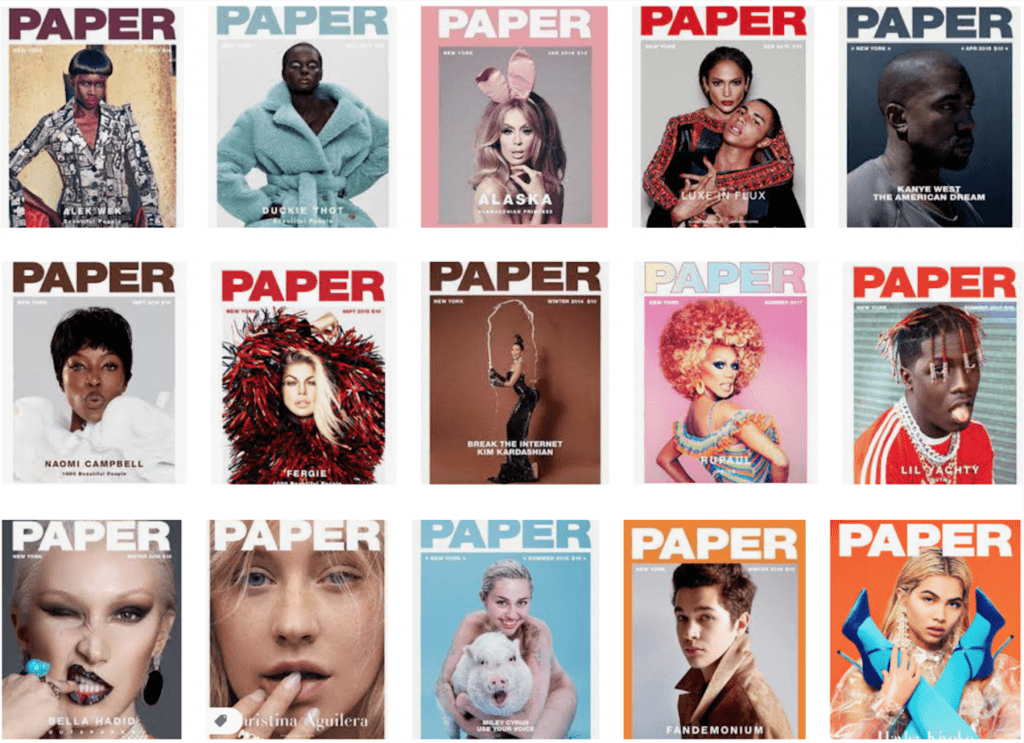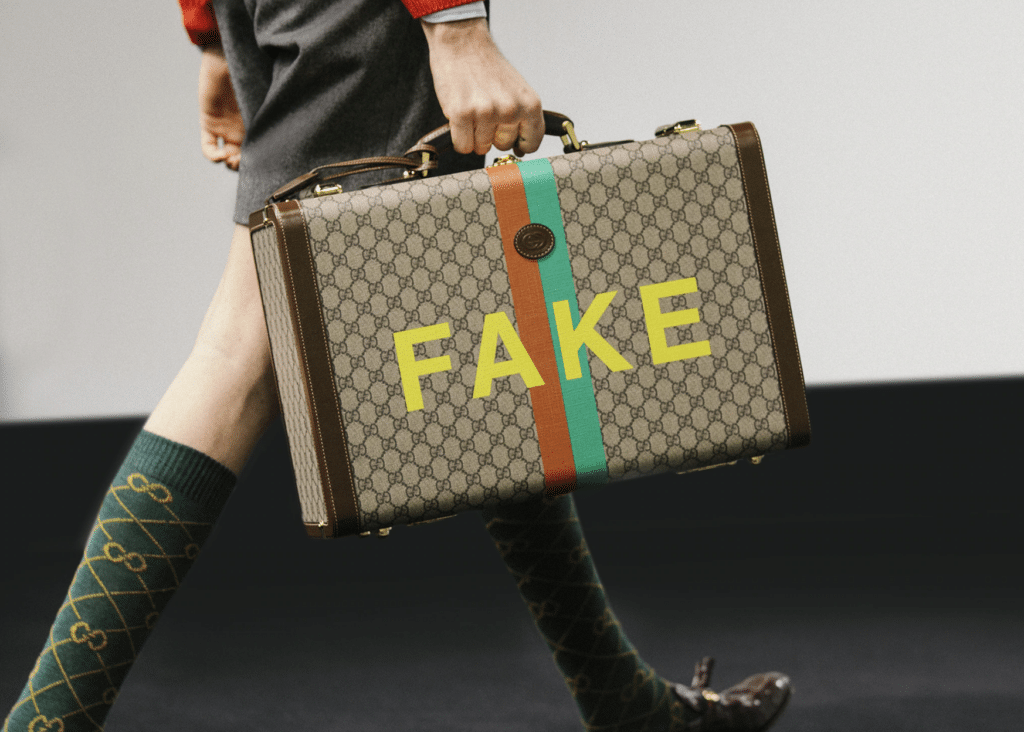As of early this month, Paper magazine had amassed a following of 1.7 million users on Instagram. By way of its account, the 36-year-old, New York-based publication – that is probably best known (at least as of late) for its 2014 “Break the internet” issue featuring Kim Kardashian, which garnered the outlet more than 34 million unique page-views – caters to fashion and pop culture fans with everything from the latest in high fashion imagery and celebrity style shots to features on the hottest up-and-coming talents in the music industry. That is until its account on the Facebook-owned platform abruptly disappeared a few weeks ago.
On July 8, Paper’s Instagram account went from active to “unavailable,” leaving users who attempt to access the page with a message alerting them that “the link you followed may be broken, or the page may have been removed.” According to Paper, the link is not broken, and the shutdown, which is still in effect, is the work of a handful of entities – including paparazzi photo licensing agencies BackGrid, Xposure, and Splash News, as well as a photo tech company called Okularity – that have demanded $4.6 million in exchange for remedying the situation.
In the lawsuit that it filed in a California federal court late last week, as first reported by Techdirt, Paper’s parent company ENTtech Media Group claims that the aforementioned defendants “are engaged in a scheme to deprive [Paper] and similar digital media companies of their valuable assets by unlawfully manipulating the take-down notice provisions of the Digital Millennium Copyright Act (“DMCA”),” a federal law that governs online copyright issues.
The “Scheme”
The defendants’ alleged scheme works a little something like this, per ENTtech: “Okularity developed software that crawls the internet” to identify infringing uses of its clients’ “allegedly protected works,” namely copyright-protected imagery. By way of the proprietary software and its services that make use of that software, Okularity identifies infringements and “automatically generates DMCA [takedown] Notices” on behalf of its clients. It sends those takedown notices – which are part of a relatively simple and quick process by which copyright holders (or their agents) can formally request that website owners/operators, from Internet Service Providers (“ISPs”) like Verizon and Google to social media platforms, such as Instagram, remove copyright infringing materials from their sites – “to any social media platform … that contains an image in Okularity’s [client] database.” (According to its website, Okularity “represents thousands of photographers and their agencies.”).
ENTtech claims that in carrying out this so-called “scheme,” Okularity does not engage in any of the “investigation, warning, or legal analysis required by the DMCA,” and does not send “any demand letters to the alleged infringers.” (It is worth noting that the DMCA does not require parties to send demand letters to alleged infringers). Instead, the Beverly Hills-based company allegedly sends automated takedown notices, and then “lies in wait while [the] notices accumulate to the point where Instagram disables the [third party’s] account,” as the app has a policy of disabling individual accounts “once a certain amount of DMCA Notices have been submitted.”
At that point, Okularity “begins to negotiate a ‘settlement’ for the alleged copyright claims” at the heart of its DMCA filings, knowing full well that “if a business like Paper has its Instagram account disabled, it has a metaphorical gun to the head of the target company, since it also knows that Instagram will not reinstate the account without a resolution of the ‘dispute.’” This is precisely what the publisher alleges that the defendants did in this case: after it “filed 48 DMCA take-down notices against Paper [and] Instagram disabled Paper’s account,” Okularity and co. made “the extortionate demand of $4.6 million dollars in exchange for informing Instagram that the dispute was resolved,” a sum that Okularity CEO Jon Nicoloni later cut down to $1.01 million in connection with the parties’ “negotiations.”
The problem with this system? ENTtech claims that it is “illegal.” Part of the issue is that the defendants allegedly “fail to follow the terms of the DMCA” when they “automatically generate and submit” DMCA takedown notices. The plaintiff’s reasoning here is that by automating these takedown notices, the defendants may have made assumptions about the nature of the content to ISPs, such as Instagram, including whether the uses are actually infringing as opposed to amounting to fair use. According to ENTtech, “Defendants’ misconduct includes its failure to take into consideration ‘fair use’ as a defense to their alleged claims,” which leads to them making “misrepresentations” to Instagram “stating that [the plaintiff’s] images, some over three years old, were infringing intellectual property rights owned by one of the [photo licensing] defendants,” namely, BackGrid, Xposure, and Splash News. (It is unclear how, exactly, Paper was using the allegedly infringing imagery, and so, it is impossible to say whether or not fair use defenses apply).
The crux of the case essentially seems to be whether the defendants run afoul of the DMCA’s bar against making “material misrepresentations” related to infringements by automatically generating and sending DMCA takedowns (allegedly) without considering if Paper’s specific use of the imagery falls within the bounds of fair use.
The publisher argues that the defendants are also on the hook for “intentionally interfering with [Paper’s] business by taking a course of action that they knew was substantially likely to deprive them of one of their primary digital assets prior to asserting any legal claim for settlement; and using unfair, fraudulent and illegal methods to carry out their scheme.”
DMCA, RICO & More
With the foregoing in mind, ENTtech sets forth claims of violations of the DMCA, which prohibits parties from “knowingly misrepresenting … that material or activity is infringing,” Intentional Interference With Prospective Economic Relations, and violations of the California Business & Professions Code on the basis of unfair competition. In connection with the latter claim, ENTtech alleges that Nicoloni has run afoul of the law by “engaging in the unauthorized practice of law.” While Nicoloni is not an attorney, he is allegedly “holding himself out as [one] or [as being] entitled to practice law … by advocating copyright ‘claims’ for ‘clients’” – namely, BackGrid, Xposure, and Splash News – and “negotiating” a settlement in their behalf.
Finally, ENTtech claims that the defendants have violated the Racketeer Influenced and Corrupt Organizations Act – a federal statute that is most commonly cited in connection with organized crime prosecutions – by engaging in a “scheme using the mails or wires in furtherance of a scheme to defraud.” Specifically, the RICO statute comes into play given that the parties, working together, “sent fraudulent DMCA notices to Instagram with the purpose to defraud their system into disabling [Paper’s] account … over fourteen times from June 4-5, 2020.”
ENTtech is seeking injunctive relief to bar Nicoloni’s alleged unfair competition, and monetary damages to be determined at trial.
*The case is ENTtech Media Group LLC v. Okularity, Inc.; Jon Nicolini; BackGrid USA, Inc.; Splash News and Picture Agency, LLC; and Xposure Photo Agency, Inc., 2:20-cv-06298 (C.D.Cal).











